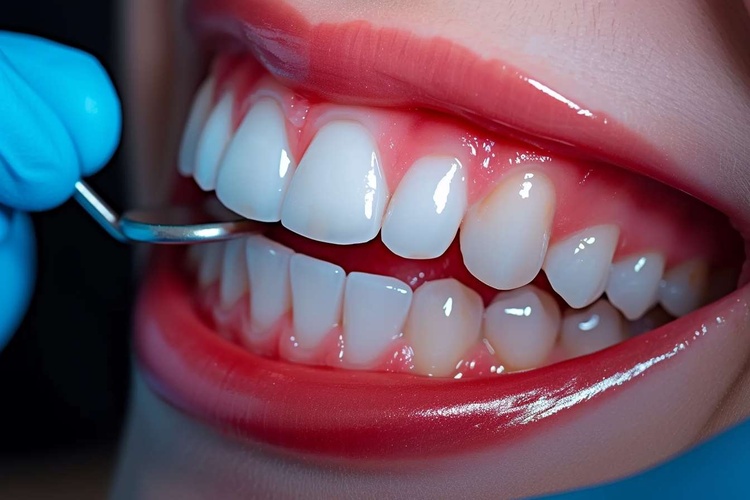When Your Teeth Try to Tell You Something
Your smile can say more than you think. Small signs — like tooth sensitivity, bleeding gums, or dryness — often appear long before pain does. These subtle changes can reveal how your oral health is shifting. Learn what everyday habits might be behind it and how early attention helps keep your smile strong and healthy.

Most people wait until pain forces them to schedule a dental appointment, but teeth rarely go from healthy to hurting overnight. Instead, they send quiet signals that something needs attention. These early indicators are easy to miss if you don’t know what to look for, yet catching them early can save time, money, and discomfort down the road.
Subtle Signs Your Teeth Give Before Pain Starts
Your teeth communicate through changes that might seem minor at first. Increased sensitivity to hot or cold foods often appears weeks or months before actual pain develops. This happens when enamel wears thin or gums recede, exposing the more sensitive layers beneath. A rough or uneven texture when you run your tongue across a tooth surface can indicate early decay or enamel erosion. Slight discoloration, particularly white spots or darkening areas, may signal demineralization or the beginning stages of cavities. Bleeding gums during brushing or flossing suggest inflammation that, if left unaddressed, can progress to gum disease. Even a persistent bad taste or odor that doesn’t improve with brushing might point to bacterial buildup or infection brewing beneath the surface.
How Noticing Changes Early Prevents Bigger Issues
Catching dental problems in their earliest stages dramatically reduces the complexity and cost of treatment. A small cavity detected early might require only a simple filling, while the same cavity left untreated could eventually demand a root canal or extraction. Gum inflammation caught at the gingivitis stage can often be reversed with improved oral hygiene and professional cleaning, but once it progresses to periodontitis, the damage to bone and tissue becomes permanent. Early detection also prevents the domino effect where one dental problem triggers others. For example, a cracked tooth that goes unnoticed can allow bacteria to enter, leading to infection, abscess formation, and potential loss of the tooth. Regular self-examination between dental visits helps you become familiar with what’s normal for your mouth, making it easier to spot when something changes.
Why Regular Attention Keeps Your Teeth Strong
Consistent daily care forms the foundation of long-term dental health. Brushing twice daily with fluoride toothpaste removes plaque before it hardens into tartar, while flossing reaches the spaces where toothbrush bristles cannot. These simple habits prevent the accumulation of bacteria that cause both cavities and gum disease. Professional cleanings every six months remove stubborn buildup and allow dentists to monitor changes over time. During these visits, dentists can identify weak spots in enamel, early signs of grinding damage, or areas where your home care routine might need adjustment. Regular attention also includes being mindful of habits that stress your teeth, such as chewing ice, using teeth as tools, or grinding during sleep. Addressing these behaviors early protects against fractures, wear patterns, and jaw problems that develop gradually.
Building a Relationship with Your Dental Health
Developing awareness of your oral health requires more than occasional checkups. It means paying attention to how your teeth feel from day to day and noting any changes, no matter how small. Keep a mental or written log of sensitivities, changes in bite alignment, or areas that feel different when you chew. This information becomes valuable during dental appointments, helping your dentist understand patterns that might not be visible during a brief examination. Building this relationship with your dental health also involves asking questions and understanding the reasoning behind recommended treatments. When you understand why a particular issue matters and how it could progress, you’re more likely to take preventive action seriously.
Common Misconceptions About Dental Signals
Many people dismiss early dental warnings, assuming that if there’s no pain, there’s no problem. This misconception leads to delayed treatment and more serious complications. Another common myth suggests that bleeding gums are normal or inevitable with age, when in fact they almost always indicate inflammation that requires attention. Some individuals believe that sensitive teeth are simply something to live with, not realizing that sensitivity often points to treatable conditions like enamel erosion or gum recession. Understanding that dental problems develop gradually and send advance warnings helps shift the mindset from reactive to proactive care.
Taking Action Without Overreacting
Noticing changes in your teeth doesn’t mean panicking over every minor sensation. The goal is balanced awareness that prompts timely action without unnecessary anxiety. If you notice persistent sensitivity lasting more than a few days, schedule a dental appointment rather than waiting for your next routine visit. The same applies to any visible changes in tooth color, texture, or gum appearance. Most early-stage dental issues are straightforward to address when caught promptly. Waiting rarely improves the situation and often allows minor problems to become major ones. Your dentist can determine whether a change requires immediate treatment or simply monitoring over time.
This article is for informational purposes only and should not be considered medical advice. Please consult a qualified healthcare professional for personalized guidance and treatment.
Your teeth provide valuable feedback about their condition long before pain demands attention. By learning to recognize subtle signs, understanding the importance of early intervention, and maintaining consistent care habits, you can prevent many common dental problems from progressing. This proactive approach not only preserves your oral health but also reduces the likelihood of complex, costly treatments in the future. Listening to what your teeth are trying to tell you is one of the most effective investments you can make in your long-term wellbeing.




